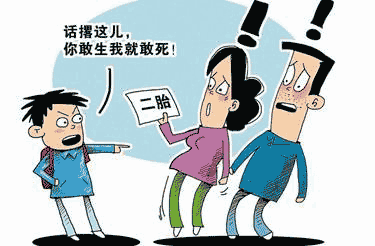With the United States as a notable exception, 57 countries have already joined the Asian Infrastructure Investment Bank (AIIB), with South Korea, the United Kingdom, Australia, France, Germany and Italy all signing up as founding members. It shows these countries hope to share the results of economic development in China and Asia. In addition, it reflects the fact that China's influence has risen to a new height and the Sino-US balance of power has undergone a significant shift. The world is entering a new era.
China's GDP expected to surpass the US
More than thirty years ago, China ranked among the least advanced countries. Since reform and opening up, China's economy has entered a rapid development track. Over the past 30-plus years, China has surpassed Italy, France, the United Kingdom, Germany and Japan to become the world's second largest economy. At present, China's GDP is twice that of Japan and amounts to 64 percent of that of the US. China now is one of the two countries in the world with a GDP of more than 10 trillion US dollars.
In 2014, China achieved 7.4 percent economic growth, the US 2.4 percent, the euro area 0.8 percent and Japan 0.2 percent. At the current growth rate, it is only a matter of time until China's GDP surpasses that of the United States.
China to re-shape international financial order
Kissinger once said that if you dominate international finance, you dominate the world. By this measure, the United States has long dominated world finance, including the International Monetary Bank, the World Bank and the Asian Development Bank. No-one could contest that the US dollar leads the world.
In recent years, the status of RMB or Chinese yuan has greatly improved.
The BRICS bank will soon be established and the AIIB is preparing for set-up, showing that a new international financial order is on the way.
China's friendships are expanding
In diplomatic ties, China has always adhered to the "Five Principles of Peaceful Co-existence". In particular, the multi-polarization that China advocates has won increasing support. China has no military allies, but many friends.
In contrast, the United States places ideology at the forefront of its diplomatic relations and feigns outrage against countries it dislikes. It strives to maintain a form of international uni-polarity which is no longer acceptable to the rest of the world, and as a result its allies are becoming increasingly restive.
Last November, Xi Jinping stated clearly in a conference on foreign affairs that China must implement a "great-power diplomacy" to exercise greater political and moral influence. Since then, China has extended its national interests and addressed itself to international morality.
China's military power steadily strengthens
After decades of development, China's military has gradually increased. Sea, land and air forces have all strengthened. In particular the development of China's aircraft carrier marks the country's entry into a new phase.
A strong military is there to protect the national security of the citizenry. Amid ongoing Saudi-led airstrikes against the Shiite Houthi rebels in Yemen and a worsening humanitarian situation on the ground, the Chinese government protected the security of overseas Chinese by successfully evacuating more than 600 Chinese nationals stranded in Yemen. Later, at the request of the relevant countries, China ordered the naval escort fleet of Chinese People's Liberation Army to conduct humanitarian relief in Yemen. The navy's rapid response won plaudits from domestic and international watchers alike.
 |

 分享到人人
分享到人人 分享到QQ空间
分享到QQ空间

 恭喜你,发表成功!
恭喜你,发表成功!

 !
!

















